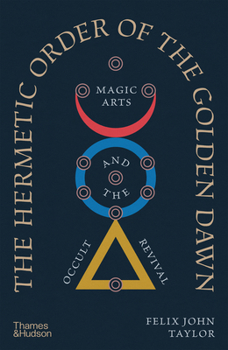The Hermetic Order of the Golden Dawn: Magic Arts and the Occult Revival
Occultism has long been associated with the visual and literary arts, the wild and the avant--garde, and nowhere was this more embodied than in the Hermetic Order of the Golden Dawn. Founded in London in the 1880s by Freemasons, it was the world's most famous secret society. In this fresh and invigorating narrative history, Felix John Taylor recounts its rise and fall through those for whom the Order represented both an alternative to traditional Victorian religious values and a space for imaginative exploration.
Devoted to the study of ceremonial magic, the Order attracted a long list of eminent writers, actors, and visual artists to its ranks, including W. B. Yeats and Aleister Crowley, as well as lesser--known key figures. It envisioned a "golden age" of spiritual enlightenment, with progressive ideals---class and gender were no barriers to entry--and teachings from tarot to alchemy and astral projection guided its ten hierarchical "grades."
While its temples were formally spaces to practice magic, Taylor finds that the Golden Dawn was at times more an arts club or society of writers. Political schisms and sex scandals ensured that it was short-lived, yet for many members its occult practices came to determine the nature of their work and influence the wider culture over a much longer period.
The Golden Dawn, with its influence on Wicca and modern magic, is a vital thread connecting Victorian esotericism to the present day occult revival. This visually arresting, meticulously researched literary history uncovers these connections, while offering a compelling account of the Order and its members.





